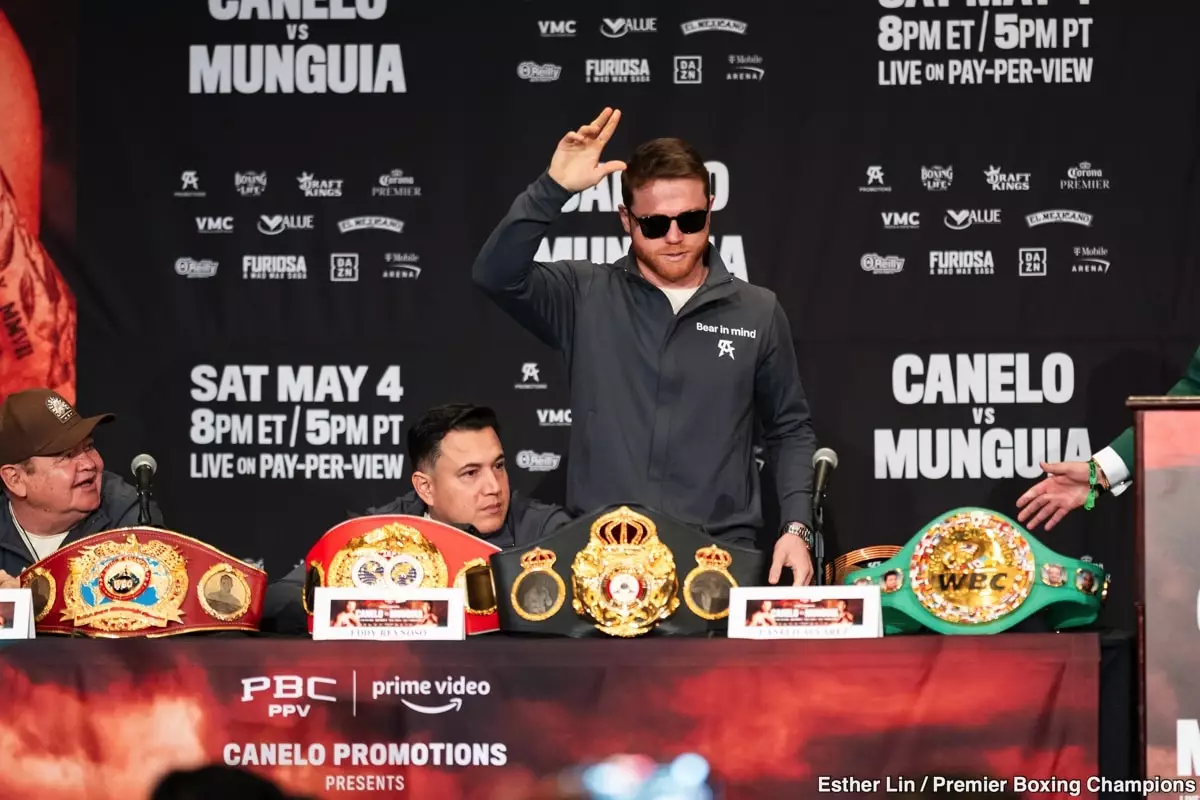In recent weeks, Eddie Hearn has ignited controversy in the world of boxing by suggesting that Canelo Alvarez’s upcoming match against Jake Paul could eclipse a potential fight with Terence Crawford. Although Alvarez, a seasoned champion with a record of 62 wins and only 2 losses, may seem an unlikely opponent for the YouTube star turned boxer, Hearn asserts that the financial incentives make the bout incredibly appealing. Paul, with his relatively modest 11-1 record, represents a different kind of challenge—one that appeals more to profitability than to the traditional standards of boxing meritocracy.
Hearn’s comment about the fight potentially being worth over $100 million highlights a stark reality: the boxing landscape is increasingly being dictated by financial gain rather than purely competitive matchups. The traditional appeal of boxing battles where skills and legacies are on the line appears to be overshadowed by marketing prowess and audience engagement. Alvarez’s willingness to consider taking on Paul rather than Crawford, a more seasoned counterpart, exposes a shift towards spectacle over sportsmanship.
Hearn also brings light to an essential aspect of the fight promotions—popularity. While Terence Crawford is undeniably talented and possesses the capabilities to provide an exhilarating contest, his appeal seems limited, particularly outside his home turf of Nebraska. In contrast, Jake Paul, despite his controversial methodology and questionable fighting record, has garnered immense popularity across diverse demographics, particularly among younger audiences. This dynamic creates a challenging narrative for traditional boxing purists who prioritize legacy and skills over commercial viability.
Such a fight may not be celebrated amongst the hardcore fanbase—the dedication to technicality and the sport’s rich history can feel undermined in the face of a celebrity match. Nevertheless, it’s hard to ignore the fact that business drives sports, and Paul’s social media presence offers a lucrative marketplace that boxing desperately seeks to tap into.
The anticipated fight raises questions regarding what boxing fans truly desire. The allure of watching Canelo lay a “spanking” on Jake can attract curious fans and facilitate new audiences into the world of boxing; however, it may simultaneously dilute the perceived value of competitive matches. As evidenced by Jake Paul’s rise, financial success is attainable even without a traditional boxing background, challenging the notion of what it means to be a boxer in today’s digital world.
The modern boxing landscape seems to be at a crossroads. Will traditional rivalries and competition persist, or will the need for spectacle and marketability continue to drive the sport’s evolution? Canelo Alvarez vs. Jake Paul, while appearing trivial to some, represents a significant moment in boxing, echoing the broader societal shift towards entertainment as a primary value over historic rivalry and sporting merit. Only time will tell how this trend will influence the future of pugilism.


Leave a Reply